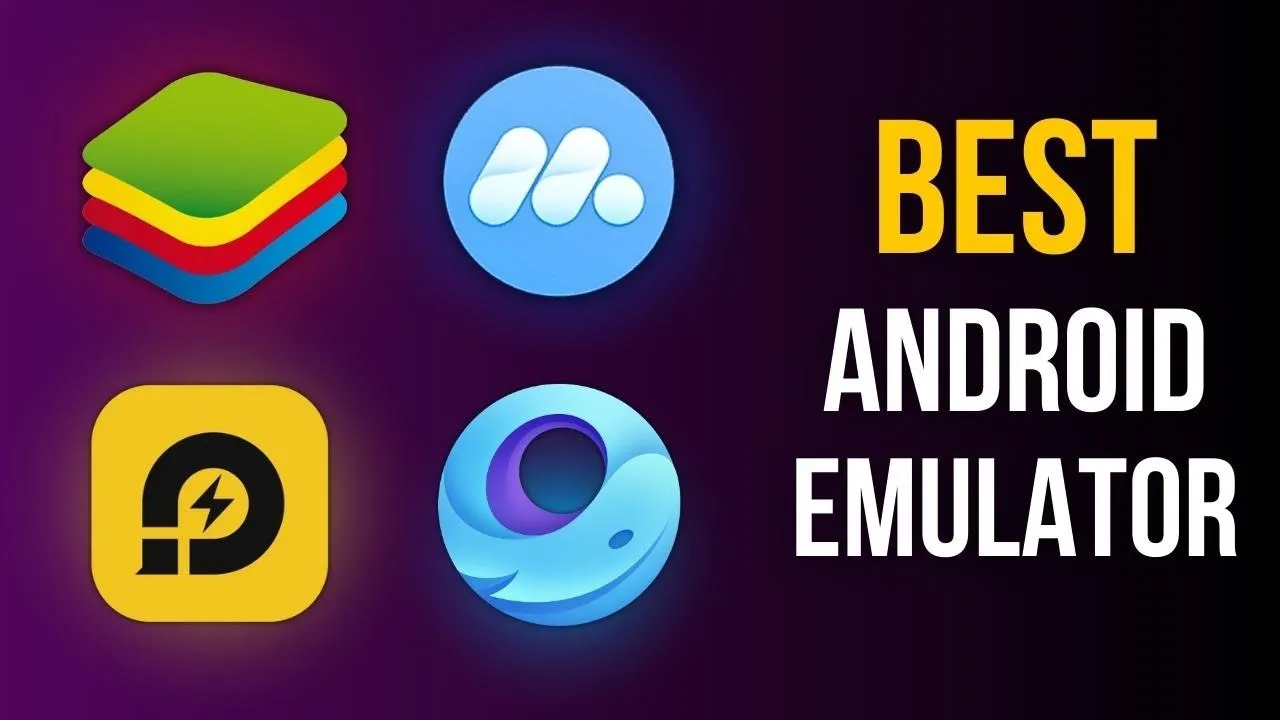With the Gen Z era fully embracing the convenience of multi-tasking on singular devices, android emulators have turned into a necessity for most people. Gamers, casual users, and even developers avail emulators these days. Genymotion has become a popular emulator because it allows you to test mobile applications, play mobile games, and even access exclusive android applications from the comfort of your PC. This guide does a detailed examination of the best emulators available in the market in 2025, looking at features, advantages, and compatibility, aiding you in making an informed decision.
With an amazing command over android emulators, it’s Genymotion that remains defiant as the best option when it comes to professional developers. Genymotion is friendly in its operations. It allows developers to test out different mobile applications through their desktop. The emulator supports the cloud, and multiple android devices, and transcends the expectations of users through its supportive interface. Users are able to modify and simulate Android features enabling testers to modify multiple environments along with screen size, resolution, and even different android versions.
Main Features:
Compatible with numerous Android versions and devices
Desktop and Cloud options available
Eclipse as well as Android Studio integration
GPS, network, and battery simulation
Pros:
Virtual devices are customizable to a high degree
Device performance is speedy and responsive
Perfect for development and application testing
Cons:
No Google Play Services in the free version
Desktop version requires VirtualBox
Best For: Comprehendible developer tailored to testing environment.
- NoxPlayer: Gamer’s Delight
Embracing gamers, NoxPlayer provides an Android emulator free of cost with a focus on gaming. It features such as keyboard mapping, recording scripts, and multiple instance emulator offering gamers an optimized experience. NoxPlayer is compatible with both Windows and MacOS broadening its accessibility.
Main Features:
Keyboard and mouse integration
Multi-instance support
Macro recorder for complex operations
Google Play Store integration
Pros:
Easy to navigate UI
Active, supportive community who provide regular updates
Gaming performance is unrivaled
Cons:
May consume significant system resources
Some games experience inconsistent compatibility
Best For: An emulator abundant in features, designed for gamers.
- BlueStacks: The Android Emulator of Choice
In the world of Android emulators, no one is a stranger to BlueStacks. It boasts unmatched reliability and allows for effortless integration of Android applications and games on a user’s PC. Furthermore, the emulator’s compatibility with both Windows and Mac operating systems adds to its appeal.
Highlights:
Multi-instance capability
High-definition gaming support
Fully customizable game controls
Built-in Google Play Store
Pros:
Easy installation and setup process.
Regular software updates improve performance.
Strong community provides assistance when needed.
Cons:
Resource intensive.
Advertisement in free version.
Best For: Android users looking for a widely supported emulator.
- Andy (Andyroid): Bridging Mobile and Desktop
The goal of Andy and also known as Andyroid, is to combine mobile computing with desktop productivity. The emulator features seamless synchrony between desktop and mobile devices, enabling users to receive notifications or even use their phone as a controller. The result is a dynamic cross-platform experience.
Highlights:
Cross-device synchronization.
Support for Google Play Store.
Integration with Windows and Mac.
Phone-as-controller functionality.
Pros:
Enhanced user experience with cross-platform interoperability.
Suitable for both gaming and productivity.
Free of charge.
Cons:
Complicated installation.
Infrequent updates.
Best For: Users in need of a combination of stationary computer and mobile device.
- LDPlayer: Efficient emulator with low resource consumption
As a gaming Android emulator, LDPlayer is lightweight. It runs smoothly on less powerful PCs and offers great performance and stability. Smooth gaming experience is provided by keyboard mapping, multi-instance, and high FPS support among other features included in LDPlayer.
Key Features:
Enhanced gaming performance.
Controllable button settings.
Support for multiple instances.
Consistent updates and bug fixes.
Pros:
Economical on system resources.
Quick to respond and reload.
Easy-to-use design.
Cons:
Exclusively for Android games.
Not all functions available for developers.
Best For: Users with budget-friendly to mid-tier PCs who enjoy gaming.
- MEmu Play: Very Versatile and Powerful
MEmu Play has been recognized for its versatility and power for quite some time. It offers support to a plethora of android games and applications while offering keyboard mapping, multiple instances, and even screen recording. Broad accessibility is guaranteed as MEmu Play is compatible with both Intel and AMD processors.
Key Features:
Management of multiple instances
Integration with Keyboard and mouse
Screen capture of the display
Support of different android version
Pros:
Compatibility with a wide range of games and applications
Frequents updates and enhancements
Alterable settings to improve performance
Cons:
Might have some stability complications from time to time
Can be too complicated for first-time users
Best For: Users in need of a progressive emulator with gaming and productivity features.
- ARChon: Browser Based Emulator
A unique emulator that runs Android applications directly from Google Chrome is ARChon. It has no separate installation requirement making it an ideal choice for users in need of a lightweight solution.
Key Features:
Operates using Google Chrome
Platform independent
no installation needed
Supports other applications in addition to Android.
Pros:
Simple to use as a lightweight
Does not require powerful hardware
Good for evaluation and basic use of applications.
Cons:
Compared to full-fledged emulators, its set of features is limited
Manual conversion of APK files is needed.
Best For: Anyone in need of an uncomplicated browser-based emulator.
- Bliss OS: Android as a Desktop OS
Bliss OS is an open-source operating system that ports Android to your PC as a standalone OS. Provides a fully functional Android experience tailored for desktops and laptops. Bliss OS has both BIOS and UEFI boot mode support to ensure compatibility with a wide array of hardware.
Key Features:
Standalone Bliss OS for PC with integrated Android services
Personalization options for ecosystem adpativity
Support for both The ARM and The x86 architectures
Routine software upgrades with assistance from the community
Pros:
Android ecosystem services on PC
Liberal customization options
Full open-source software availability
Cons:
Hardware selection complexity
Employment intricacies with each distinct framework may not be universal
Best For: Users who wish to enjoy the unmitigated Android Operating System on a computer.
- PrimeOS: Android Gaming on PC
Designed for an electrifying PrimeOS gaming immersion on PCs, it adopts an Android framework. With multi-window support, keyboard mapping, and a taskbar, provides oblique functions associated with desktops. For superior performance and high compatibility with a variety of Android games, PrimeOS is optimized for gaming.
Key Features:
Substitute for complicit gaming offers Android services
Support for multiple windows
Mouse with a aim of keyboard Participation modes
Gaming hub for swift navigation
Pros:
Performance optimization for gaming
Friendly-intuitive graphical interface

